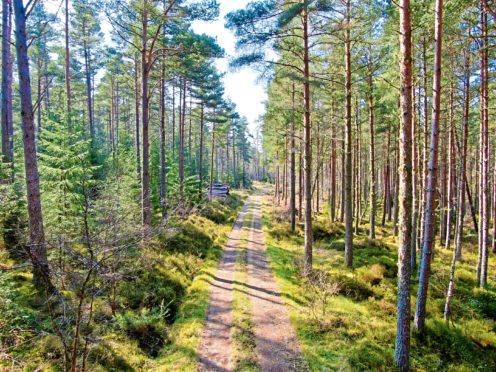Scotland is leading the way in both the quantity of new trees being planted and the sale of forest land, according to the latest UK Forest Market Report.
Almost 80% of all UK forest sales and 85% of new planting took place north of the Border in 2018-19.
The report reveals the average price of commercial forestry on the market rose 23% over the year, despite a softening of the timber market. A total of 81 properties were traded, with an average price of £1.56 million, and five sold for more than £5m.
In total, 69% of properties sold above their guide price, and there was a 23% year-on-year rise in average values to £11,478 per stocked hectare (£4,645 per acre).
The report, produced by Tilhill Forestry and John Clegg & Co, points out that the Scottish Government’s planting target of 25,000 acres was exceeded this year, with 27,700 acres of new woodland, and it appears to be on course to do so again in the 2019-20 planting year.
Meanwhile, Peter Whitfield, business development director for Tilhill Forestry, said the booming sales figures were in part a reflection of the quality of the forests which came to the market over the past year.
He said: “Deviations in the quality of properties sold distort the comparison and, if we were to compare like for like examples, we would probably see something closer to a 10-12% rise. That said, there is clearly a genuinely strong uplift in the market.”
Fenning Welstead, director at John Clegg & Co, added: “With the softening of timber prices this year, it might be thought that forest property values should follow suit.
“This is not happening and we believe that this is a direct reflection of the trend towards renewable resources and a move to a low-carbon economy.”
The report adds that if forest cover in the UK is to be materially increased, the momentum needs to spread to England and Wales.
It says: “We can expect an unsettled few years ahead both politically and economically. In this environment, we can see the value and security of real assets that continue growing regardless of political uncertainty.
“This, along with a continued political support for forestry, aligned with a new impetus for woodland creation driven by growing climate change concerns, makes us optimistic about the future.”
